#mauge
Explore tagged Tumblr posts
Text
Lo simple
Busco la simpleza ahora. Me atrae la calma y lo bello de lo simple. Incluso ahora cuando escribo. Quiero liberarme de pretensiones, de palabras grandes y elaboradas. Siempre traté de incluirlas en lo que escribía y al leerlas, quedaba expuesta su falsedad. No hay palabra más honesta, más verdadera, que aquella que surge del destello en la mente y lentamente se va convirtiendo en voz.
#textos#notas#historias#historias cortas#cuentos#cuentos cortos#frases#escritores de tumblr#cosas que escribo#escritos#writers on tumblr#writing#pensamientos#writerscommunity#mauge
27 notes
·
View notes
Text





Céline Mauge
La Fiancée de Dracula (2002)
Dir. Jean Rollin
25 notes
·
View notes
Text

A 2ft (0.6m) industrious brownie, but one not to be angered.
Her most famous tale involves the death of her son, for when the two lived at Fincastle Mill they protected it from would-be trespassers. However, once upon a night, a girl made her way in to get flour for a cake. Brownie-Clod went to drive her away, but was tricked upon asking for her name, for she said she was "Mi fein" which means herself. When he came close, she threw an entire pot of boiling water she'd made while she worked upon the poor dobie. He ran to his mother, but she could do nothing to save him. When Maggy asked who had done the deed, he repeated "Mi fein" from which Maggy could only believe he had caused the fatal wounds himself.
It would be some time before Maggy would, while merely passing by a window, overhear the girl gloating to friends about how she had outwitted a brownie. Maggy was filled with such righteous fury that she picked up a stool. The stool was thrown with such force that the girl died immediately upon contact.
#BriefBestiary#bestiary#digital art#fantasy#folklore#legend#myth#mythology#brownie#maggy moulach#hairy meg#maug vuluchd#manch monlach#fincastle mill#tullochgorm castle#scottish folklore#scottish legend#fairy#fae
14 notes
·
View notes
Text
Husbando/waifu material


"No, I will not address this."
2 notes
·
View notes
Text
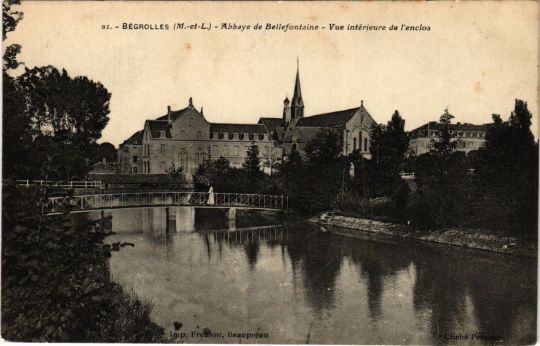
Bellefontaine Abbey in Bégrolles-en-Mauges, Anjou region of France
French vintage postcard
#france#briefkaart#abbey#en#mauges#postal#bellefontaine#carte postale#tarjeta#region#ansichtskarte#anjour#photo#historic#postkaart#sepia#bellefontaine abbey#photography#postcard#ephemera#french#vintage#old#bégrolles-en-mauges#postkarte#bgrolles
6 notes
·
View notes
Text

Here is my part of the art trade we did with @candlezofficial I ofc asked for some selfincert x Mauga and she asked for some crack poly-ship content, it was very fun to draw tbh asnfkjn thanks for the cool vibes and the silly duduls, I appreciate it very much <3<3<3 Edit: I want to share Candlez part of the art trade as well bc I love silly ship art like this ijIjij LOOK, IT'S MY SELFINCERT WITH THE BIG TIDDY SEXY SAMOAN MAN
60 notes
·
View notes
Text
Ms. Mitternacht

What a beautiful perfect lady! I love and adore her So Much!!! She’s my favorite god by far in the game, and I have to say that I would worship her 100% ÙÚ
A monster under the cut.
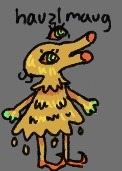
HAUZL MAUG
Ueeheehee look at this stupid kooky little thing!! Huzzle Mug would definitely be my choice the second of God Worship, it’s just an artsy fartsy weirdo whom of which I love (I have a crushy on huzzle)
#digital art#digital doodle#planty art#great god grove#ggg fanart#ggg miss mitternacht#ms mitternacht#miss mitternacht#ggg huzzle mug#huzzle mug
53 notes
·
View notes
Text
Alliance of Shadows (12)

A/N: This is it babes... the final chapter. I do have an epilouge planned that is definitely... rated R for raunchy. For now though, enjoy!
Pairing: Adar x Reader
Warnings: None
Taglist: @annatartastic @oakenshielq @perse-cora @eowyn7023 @passionofthesith @zoya-olenko
Word Count: 3.2 K
Previous- Next
~~~~~~~~~~~~~~~~~~~~~~~~~~~~~~~~~~~~~~~~~~~~~~~~~~~~~~~~~~~~~~~
The mountain range ahead loomed vast and ancient, its peaks dusted with snow even in the warmer months. The mages had long called this place home, hidden in their solitude, away from the world that often looked at them with distrust. Now, as you and Adar led the Uruks and your people toward the imposing peaks you couldn’t help but feel the weight of the journey ahead—not just the trek through rugged terrain, but the merging of two vastly different peoples.
“Ered Sûr,” you murmur to Adar beside you, “The Mountains of Silence.”
The Uruks, stoic as always, walk with purpose. Their dark eyes sweep the horizon, ever wary of danger. Though the threat of Sauron has been sealed away, they carry with them a wariness, as if expecting some new battle at any moment. Behind them, the mages move with quiet grace, their robes flowing in the wind. Though both groups had fought side by side, it is clear that old habits of distrust have not yet fully faded.
As the path begins to ascend, the Uruks raise their heads toward the jagged peaks of Ered Sûr. You catch the gleam in Adar’s eyes—his people have wandered for too long, and now they stand at the threshold of a potential home. The air grows colder as you climb higher, the rocky terrain testing everyone’s endurance, but there is no faltering, no doubt in the steps of either group. This is a necessary journey, and one that holds promise.
Finally, as night begins to fall, the peaks come into full view. The closest summit, which you had planned to offer to the Uruk’s, stood sentinel over the landscape.
“This is Karn Maug, or the "Red Peak,"" you say to Adar, as you steadily climb. “With any luck, the council will agree that it is perfect for your people.”
Adar takes in the landscape around him. He nods slowly, “I can see its appeal. Your land is beautiful.” Though you know he is only remarking on the land that will soon be his home, you cannot help the flush on your cheeks at his praise.
As you descend toward the valley where your council waits, your thoughts churn. Would they understand? Would they accept the Uruks?
The chamber where the council convenes is carved deep into the mountain’s heart. Torches flicker on the walls, casting dancing shadows as you and Adar enter. The council members sit in a half-circle, their faces impassive. Their robes, a shimmering deep blue, mark them as the wisest of your people.
While you regale the council of your journey and your proposition, Adar stands tall beside you, his presence commanding but not hostile. His Uruks wait outside, scattered along the valley as they observe their surroundings, no doubt suspicious of this new environment. The mages, too, watch with silent curiosity, knowing that this meeting would shape the future of their kingdoms.
One of the councilors, an older mage named Erys, leans forward, his piercing gaze fixed on you. “You ask much of us, Your Majesty. These Uruks, they are not our kind. They have lived in the shadows, they have spilled blood. Why should we welcome them into our lands?”
You straighten, allowing the weight of your title to settle in the room for a moment before you speak. “I understand your concerns, Erys. And while it is within my power to make this decision alone, I value your wisdom, your guidance. I have not led us into ruin, nor will I now. Your counsel matters, and I won’t act without hearing your voices.”
Erys frowns, but he gives a nod of acknowledgment. His respect for you remains, even in disagreement. You continue, your heart heavy but your voice firm. “The Uruks have been cast aside by the world, just as we once were. For too long, we’ve shut ourselves away from the world’s struggles, and though we have known peace, it is peace born of avoidance. Now we have an opportunity to do more, to offer a home to those who have been cast out.”
You pause, the words building up inside you like a storm that you could no longer contain. “And I owe them this.”
The room stills. The councilors’ eyes flicker in confusion, waiting for you to explain. You draw in a breath, the weight of your confession pressing down on your chest.
“When we fought Sauron,” you begin, your voice softer now, “I lost control of my magic. In my rage, I sought only to stop him. I didn’t think… I didn’t think about the consequences. In my desperation, I bound him to the volcano in Mordor. I cursed that land, the very place the Uruks had fought to reclaim as their home.”
The councilors exchange uncertain glances, but you press on. “I did this. I destroyed their home with my mistake. And now they have nowhere to go. I feel responsible for giving them a place—a true home. Not just because of my error, but because I’ve seen their strength, their loyalty. They deserve more than to be cast out again.”
The weight of your words hangs in the air. You can feel the tension in the room, the discomfort of the councilors as they absorb what you have admitted.
Another councilor, Mara, speaks up next, her voice carefully measured. “And what if they turn against us, Your Majesty? What if they use that strength to conquer rather than to coexist?”
You meet her gaze, your spine straightening with resolve. “We cannot live in fear of ‘what ifs,’” you say calmly but with conviction. “I am Queen, and if I doubted them, they would not have crossed our borders. But understand this: they have no desire for conquest. I have seen their pain, their yearning for a home. They wish to live, as we do, in peace.”
The council remains silent for a beat, but you can sense their hesitancy. It is then that Adar, who has remained quiet, steps forward. His voice, calm and steady, fills the chamber.
“I will swear fealty to you and your people, if that is what is required. I will pledge my life and the lives of my children to your kingdom’s protection.”
His words take you by surprise. You turn to him, shaking your head. “You owe us nothing, Adar. You and your people have already paid enough. You do not need to bend the knee.”
Adar meets your gaze, his dark eyes unreadable. “It is not about owing, but about peace. I will do what is necessary to ensure that our people can live without fear.”
The council murmurs among themselves, weighing the offer. Erys finally raises his hand for silence, his brow furrowed in deep thought. “Fealty may not be enough to ease the minds of our people. There is a way, though, to ensure unity between us... A marriage.”
Your heart skips a beat, and for a moment, the entire room seems to close in. You blink, flustered, your mind racing to comprehend the suggestion. “A marriage?”
Mara nods, her eyes observing your reaction carefully. “A marriage between the leaders of our people would serve to quell any doubts of rebellion or uprising. It would symbolize the merging of our kingdoms—both Uruk and mage united by blood and bond.”
You look at Adar, searching his face for some reaction. To your shock, he is smiling, albeit subtly. There is a glimmer of amusement, perhaps even approval, in his eyes. He glances at you, his voice low and filled with a private, secret satisfaction. “It seems… a practical solution.”
Heat rises to your cheeks as you stammer, “I—”
Adar speaks again, his tone now more serious. “We are willing to carve our home into the Red Peak. But if you allow us, we will not be a kingdom separate from yours. Over time, our peoples will come together. We will share the land, share the mountains, our resources. Let us build something lasting.”
Erys sits back, considering. “Very well. Should the Queen approve, the Uruks will begin carving their homes in Karn Maug. In return, their armies will be ours in times of need. And we will help them carve out the stone, with our magic and with our hands.”
Relief floods through you. “It will be done,” you say quietly.
As the meeting concluded, the future now set in motion, you linger beside Adar. His presence is reassuring, grounding you in this moment of monumental change.
“You’re… you’re not opposed to the council’s suggestion?” you ask, still flustered by the mention of marriage.
Adar’s dark eyes gleam as he regards you. “Opposed? No. I am not opposed to being bound to you, not in the least. In life or death, I would never wish to be parted from you.”
His words send a thrill through your chest, and for a moment, the weight of all that has passed seems distant, replaced only by the quiet certainty of his love.
As you and Adar make your way down from the council chamber, a familiar sight greets you—his children, gathered near the valley clearing where the Uruks have set up a temporary camp. Their rugged faces, scarred and hardened by years of battle and struggle, soften the moment they see Adar approach. A murmur runs through them, and soon, every eye is fixed on him, anticipation hanging thick in the air.
Adar pauses before them, casting a long glance over the gathering of his people, his family. He has always been a pillar of strength, but today, there is something different in his posture, something that makes the air hum with expectation.
Finally, he speaks, his deep voice carrying across the clearing. “My children,” he begins, and the murmurs quiet immediately. “We have traveled far. We have fought harder than anyone could have imagined. And today, I bring news of hope.”
The Uruks lean forward, listening intently. You stand by Adar’s side, watching as their eyes light with the faintest spark of hope—something that has been a rarity in their lives.
“The Red Peak will be our new home,” Adar continues, his voice steady and filled with quiet pride. “The mountains have welcomed us, and we shall carve out a kingdom here. No longer will we wander the shadows, cast aside by the world. This land will be ours.”
For a moment, there is silence, the weight of his words sinking in. Then, like the breaking of a dam, a cheer erupts from the Uruks. The roar of celebration is fierce, filled with the raw emotion of a people who have been denied a home for so long. The ground seems to tremble beneath the force of their joy, and you feel the warmth of it settle deep in your chest.
Adar’s children rush forward, some clapping him on the back, others raising their weapons in triumph. The sense of unity, of shared victory, is palpable. The Uruks, so often seen as brutal and cold, now stand together in a moment of pure celebration.
You step forward, raising your hand to quiet them, though your heart swells with the same sense of relief and hope. “For now, make camp in this valley,” you say, your voice carrying over the crowd. “But soon, we will begin building homes. Permanent homes. It will take time, but know this—you are safe. You are protected within these mountains. If there is anything you require, please find one of my people. We know the pain of rebuilding. We will provide what you need. Be welcome, children of Adar, and know peace.”
A second, louder cheer erupts, so fierce and full of life that it seems to echo through the peaks around you. The Uruks raise their fists in the air, their voices merging with the wind, a chorus of triumph and gratitude. Even the mages among them, initially cautious of this alliance, are swept up in the infectious energy, their faces softening as they join in the cheers.
Adar turns to you, his dark eyes filled with something akin to pride. You have both fought for this—together. And now, standing in the midst of your united peoples, you know that the road ahead, though still fraught with challenges, would be walked side by side.
As the night stretches on, the valley becomes a place of celebration. Fires are lit, food is shared, and laughter—a rare, beautiful sound—rings out among the Uruks and mages alike. It is the beginning of something new, something stronger than either people have ever known.
Adar leans in close, his voice just loud enough for you to hear amidst the celebrations. “They cheer for us now. But it is you who gave them this hope.”
You shake your head slightly, smiling. “It was you Adar, you have done well by your children.”
A single tear slides down his cheek. You gasp as he gives you a rare full smile. It changes his face, making him appear younger, lighter, and even more beautiful. You cannot help the smile that stretches across your lips in return.
—--
After the night’s celebration, you retreat to your chambers, longing for quiet, though the silence feels foreign after so many weeks spent among the chaotic, lively Uruks. The vast room, with its high ceilings and sweeping drapery, feels too large, too empty. Every footstep echoes in the stillness, and the luxury of the space suddenly feels overwhelming. You dismiss your handmaidens, assuring them that you need time for contemplation, though as soon as the door shuts, the weight of solitude presses down upon you.
You sit at your writing desk, staring at the blank page before you, but your mind refuses to settle. Without Adar’s steady presence, without the constant hum of voices around you, the quiet gnaws at your thoughts. Your heart aches with a strange, unfamiliar emptiness, one that pulls you toward the one person who has anchored you in this tumultuous time.
Finally, unable to bear it any longer, you rise and move to the door. You grasp the handle and pull the door open wide, and there stands Adar, his silhouette bathed in the soft light of the hallway.
“I was coming to see if there were any extra blankets,” he says, his voice low and familiar. “Some of the young ones—” he pauses, hesitating for just a moment before continuing, “they’re not used to the cold here.”
You blink in surprise, relief flooding through you at the sight of him. “Adar, you could have sent anyone,” you say, though there’s no edge to your words, only affection. “One of your people, or even one of my guards—they would’ve gladly provided whatever was needed.”
His lips curve into the faintest of smiles. “Perhaps,” he admits.
The simplicity of his confession sends a warmth through you, and without another word, you turn to the guard outside your door. “Fetch more blankets for the young ones,” you instruct gently. “Distribute them to those who need them.”
The guard nods, disappearing down the corridor. As soon as the guard vanishes, you turn back to Adar, your heart thudding a little faster now that you’re alone with him.
“Come inside,” you say, stepping back to let him enter.
He moves into the room, his dark eyes quietly taking in his surroundings. You walk ahead of him, showing him the front room where your writing desk and library reside, the shelves lined with scrolls and books of ancient knowledge. You pass by the door to your bathing chamber, the lingering scent of herbs and oils filling the air. Finally, you lead him to your bedroom.
You hesitate there, both of your gazes drawn to the large bed in the center of the room, its sheets pulled tight and pristine. The tension between you, already simmering beneath the surface, spikes. It occurs to you that this is the first time since your meeting that you are truly alone, no armies outside demanding your attention, no fights on the horizon, and no duties calling your names for the rest of the night. Your heart races, and for a moment, neither of you speaks, the air thick with unspoken words and unsaid desires.
Desperate to break the tension, you turn abruptly and lead him toward the balcony doors, pushing them open to reveal the vast terrace that overlooks the mountain range. The cool night air greets you both, carrying with it the scent of pine and stone. Above you, the stars stretch out like an endless sea of glittering lights, brilliant and bright against the dark sky.
Adar steps onto the balcony beside you, his gaze drawn upward. His breath catches, and you see something in his expression that you’ve never seen before—wonder, pure and unguarded.
“The stars,” he murmurs, almost to himself.
You watch him closely, the way his eyes shine with awe, as if he’s seeing them for the first time.
“When I was very young,” he begins, his voice low and steady, “my mother used to hold me in her arms on nights like this. She would point up at the stars and tell me stories of the Valar—how they shaped the world and guided the fate of all who lived within it. She said that the stars were the light of the Valar’s love, watching over us, even in the darkest times.”
You listen intently, your heart swelling at the image of him as a small child, cradled by a mother who, despite the world’s harshness, still found a way to pass on stories of hope and wonder.
“She would say that the stars were our ancestors, shining down to remind us that we were never truly alone,” he continues, his voice softer now. “Even when everything seemed lost, there was always light to guide us—if only we had the strength to look up.”
He takes a deep breath, his expression both wistful and sorrowful. “As I grew older, those stories faded. My mother died when I was still very young. After that… the world became harsher, crueler. There was no time for stories, no time for the stars.”
His voice softens, a shadow passing over his face. “During my time with Sauron, I lost hope in them. I stopped looking up. I had no time for them while freeing my children.”
He falls silent for a long moment, his eyes still fixed on the sky. “Now,” he says, his voice barely above a whisper, “I can’t remember the last time I saw them this clearly.”
His words hit you like a weight, and a lump rises in your throat. You take a step toward him, closing the distance between you. “Adar…” you whisper, your voice thick with emotion.
Gently, you reach for him, pulling him into your arms. His body tenses for just a moment before he relaxes into the embrace, his forehead resting against yours. The silence between you is filled with the soft rustling of leaves in the wind, the distant murmur of the mountains.
“We will bask in their light together,” you promise, your voice steady. “And in the joy of your children. You are free now, Adar. We are free.”
Tears prick at your eyes as you press a soft kiss to his lips, the weight of everything you’ve both endured and survived pouring into the moment. He returns the kiss gently, his hands coming to rest on your waist, grounding you both in the here and now.
When you finally pull back, his gaze is locked on yours, filled with the same awe he had for the stars moments before. There is a quiet peace between you now, the tension gone, replaced with something deeper, something unshakable.
“Together,” he whispers, his voice a vow.
#the rings of power#adar#adar rings of power#adar x you#rings of power s2#adar x reader#adar fanfic#adar series#fanfiction#alliance of shadows
54 notes
·
View notes
Text
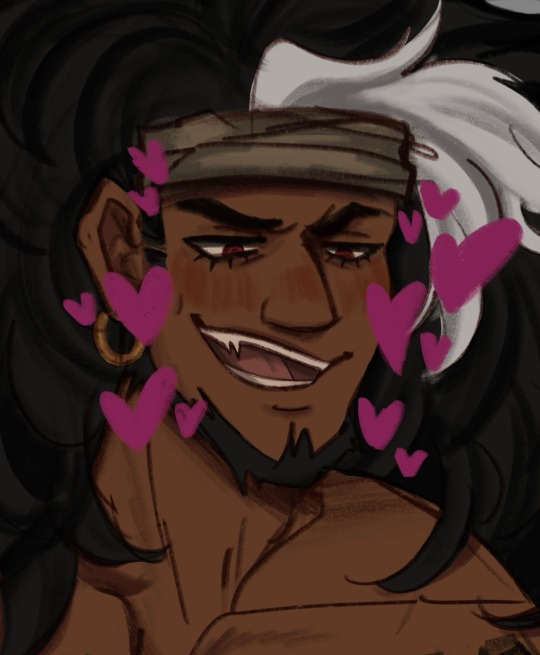
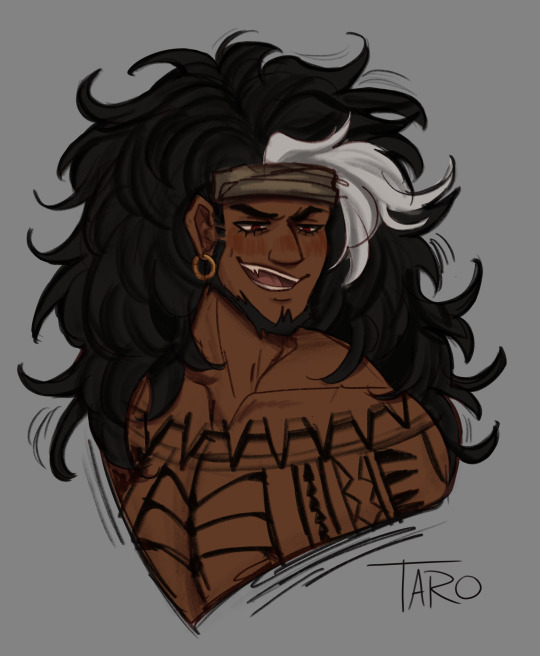
him….. the maugs…. the wife………
drawn very quickly before i got on overwatch to play him for the next 5 hours
#i also wanted to try out a more loose style thats more similar to how i draw on paper so he was good practice#love him love him love him so much#digital art#taro art#overwatch 2#overwatch fanart#overwatch mauga#maugaloa malosi#ow2
163 notes
·
View notes
Text

another art trade time!
this time for the amazing @mister-random ! and their self-insert along with da big maug (i really gotta study maug fr)
i actually enjoyed the bottom right part alot xd
tysm for the chance mister!
#fanart#overwatch#overwatch 2#digital art#art#overwatch fanart#no ai art#mauga#mauga overwatch#oc#oc artwork#not my oc#art trade#my art#artwork#artists on tumblr#krita art#drawing#memes
37 notes
·
View notes
Text



Cartoon Heroes Paper Cut-Outs
Totally Spies
Alex, Clover and Sam are a trio of teenagers living in Beverley Hills who lead a double life as top agents of the spy agency known as the World Organization of Human Protection (or WOOHP). Clad in colorful jumpsuits and armed with a bevy of high-tech gadgetry, the three secret agents having thwarted countless schemes by evildoers while simultaneously navigating the trials and tribulations of being teenager high schoolers.

Created by Vincent Chalvon-Demersay and David Michel for Zodiak Kids & Family France, the series has continued for seven seasons. A huge hit in France, the show has been translated into numerous languages and aired in The united States on Cartoon Network and Universal Kids.

Many actresses have voiced the characters in both he original French version as well as the English language iteration, including Claire Guyot, Fily Keita, Céline Mauge, Laura Préjean, Déborah Claude, Jennifer Hale, Andrea Baker and Katie Leigh. Totally spies debuted in November of 2001.

32 notes
·
View notes
Text
Empiezo
Todavía no puedo superar la autocensura. No sé si lo hago por vergüenza, miedo o lástima, pero siempre termino destruyendo lo que escribo. Llamas, pintura, tinta, el botón de "eliminar", se han llevado mis pensamientos una y otra vez. Pero después llega el arrepentimiento: "desearía no haber quemado esos diarios, no haber pintado con acrílicos sobre mis confesiones de amor, no haber tachado mis palabras hasta volverlas indistinguibles, no haber eliminado cientos de posts". Pero ya no hay marcha atrás. Y una vez más lo vuelvo a intentar. Esta vez sin vergüenza, sin miedo y sin lástima.
#historias#stories#writing#writerscommunity#writers on tumblr#cosas que escribo#escritos#pensamientos#thoughts#libros#books#escritores de tumblr#mauge#cuentos#historias cortas#notas#textos
11 notes
·
View notes
Text
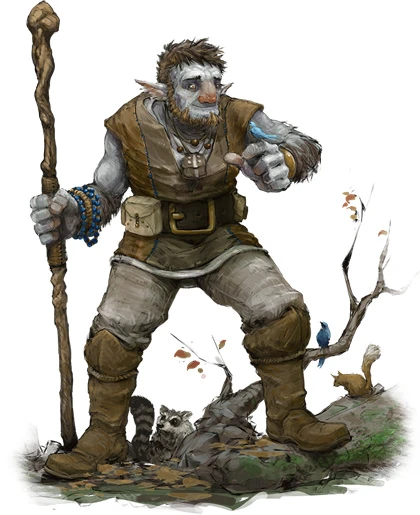
Firbolgs (pronounced: /ˈfɪərboʊlg/ FEER-bolg) were a reclusive race of giant-kin who preferred to avoid contact with other sentient races. They were both the most intelligent and the most powerful of the giant-kin.
“Well, now. They live in the Big Cave – here in the fens. They look like you, as, of course, I said already, except they're much taller and broader and, well, hairier, and their noses are huge, I mean they just hang out of their faces like a limb hangs off a tree, and, well, they smell bad, and …” — Newt, the faerie dragon
Firbolgs resembled humans, and the males would sport great, thick beards. Their thick, tough skin was fleshy pink, and their hair, though it came in many colors, was usually either red or blond and worn long. A firbolg's voice was deep and smooth, and they tended to roll their consonants when speaking.
Firbolgs were typically over 10 feet (3 meters) tall, averaging a height of about 10.5 feet (3.2 meters). While firbolgs from other worlds weighed more than 800 pounds (360 kilograms), those of Faerûn were lighter, with males being about 650 pounds (290 kilograms) and females about 500 pounds (230 kilograms).
The firbolgs of the Moonshae Isles were said to be considerably ugly.
The average firbolg was stronger than a forest bear. Beyond sheer physical strength, they had innate magical abilities. Firbolgs were said to be resistant to magic. They could sense the presence of magical auras innately. They also had the power to change their physical appearance, including making themselves larger or smaller. They sometimes used this magical power to blend in or interact with smaller races.
They had excellent vision at night and could perhaps see in the dark. Some sages claimed that firbolgs had regenerative abilities. Other sages reported that firbolgs could make themselves turn invisible. They were also said to be able to communicate to a limited effect with both plants and animals of their forest homes.
Firbolgs enjoyed quiet time in the woods, in harmony with nature. The forests were sacred to them and symbolized the heart of the earth and the adaptability of life. They saw themselves as the forests' caretakers.
While firbolgs of other worlds may have had tendencies toward a variety of alignments, those of Faerûn were usually lawful good in alignment, although they were seen as maug ("unholy" or "dishonorable") creatures by other giants, because of the sin of the goddess Othea.
Firbolgs considered greed to be one of the worst vices. They believed that one should only ever take what one needs and no more. They saw no value in material wealth such as gems and gold, but sometimes would find prankish ways of taking valuables from strangers, out of a sense of fun.
Firbolgs believed that charity was a virtue but also believed that it was harmful for the recipient to know the identity of the provider; because of this they appeared to be reclusive amongst the other races, although they were very sociable with established friends. They were extremely honest and could not lie without feeling physical discomfort, even if the lie was by omission.
Firbolgs tended to be over-confident and fearless, except for a pervasive phobia of humanoid mobs. They saw the wearing of armor as cowardly, and thus did not usually wear armor, nor did they carry shields.
Firbolgs were cautious and shrewd in their dealings with outsiders. They distrusted most humans and demihumans. Among non-giants, they were neutral with druids, elves, and fey. They were on good terms with storm giants, whom they looked up to and tried to emulate, but they avoided other giant races, and actively fought against the other giant-kin.
Firbolgs enjoyed quiet time in the woods, in harmony with nature. The forests were sacred to them and symbolized the heart of the earth and the adaptability of life. They saw themselves as the forests' caretakers.
While firbolgs of other worlds may have had tendencies toward a variety of alignments, those of Faerûn were usually lawful good in alignment, although they were seen as maug ("unholy" or "dishonorable") creatures by other giants, because of the sin of the goddess Othea.
Firbolgs considered greed to be one of the worst vices. They believed that one should only ever take what one needs and no more. They saw no value in material wealth such as gems and gold, but sometimes would find prankish ways of taking valuables from strangers, out of a sense of fun.
Firbolgs believed that charity was a virtue but also believed that it was harmful for the recipient to know the identity of the provider; because of this they appeared to be reclusive amongst the other races, although they were very sociable with established friends. They were extremely honest and could not lie without feeling physical discomfort, even if the lie was by omission.
Firbolgs tended to be over-confident and fearless, except for a pervasive phobia of humanoid mobs. They saw the wearing of armor as cowardly, and thus did not usually wear armor, nor did they carry shields.
Firbolgs were cautious and shrewd in their dealings with outsiders. They distrusted most humans and demihumans. Among non-giants, they were neutral with druids, elves, and fey. They were on good terms with storm giants, whom they looked up to and tried to emulate, but they avoided other giant races, and actively fought against the other giant-kin.
Firbolgs had a family-centered, clan-based society. They lived in settlements in remote hilly or forested areas. Their settlements were strongholds, including wooden structures, built from the trees around them, with defensive towers with catwalks between them. Rarely, they inhabited cavern complexes dug into the hillsides. They used their magic to ensure that their homes remained a secret to outsiders. These clan settlements were small, with between about four and sixteen members, often with a shaman or druid, and lived separate from each other. A few firbolg clans were nomadic.
A typical firbolg home was a huge one-story log building with strong walls. A large fireplace with multiple openings warmed a central common room.
As caretakers of the woods, they carefully and resourcefully lived off the land, making sure to ensure balance. During summer, they stored excess nuts, fruits, and berries, so that they could provide food to the forest animals during winter. Although they did farm, it was only to supplement their diets; they preferred a more hunter-gatherer lifestyle, rather than the brigand/raider lifestyle of many other giants. Their hunting grounds were usually spread out in a 20‑mile (32‑kilometer) radius from their clan homes. They ate small portions of meat with most meals, and reserved large roasts of meat for special celebrations.
Most firbolg tribes preferred isolation from other races, avoiding their politics and struggles. If intruders entered their territory, they would usually try an indirect approach at causing the "invaders" to leave—driving game away to discourage hunters or redirecting streams or forest trails to confuse parties. If these methods failed, the firbolgs would at last confront the outsiders. If the outsiders seemed peaceful, the firbolgs would peacefully ask them to leave; if the outsiders seemed evil or seemed to have no concern for the forest lands, the firbolgs might mount a devastating attack. On occasion, they would trade with peaceful folk living nearby in exchange for providing services utilizing their great strength.
Firbolg adventurers were rare and most often were individuals separated from their tribes—orphans, exiles, lone survivors, or the like. A few adventured to gain knowledge.
Firbolgs seemed to have a natural tendency toward druidic magics, and many of their chieftains were thus druids. Others became rangers or fighters. Other adventuring vocations were rare; firbolg monks were completely unknown. About five percent of firbolgs encountered were shamans.
Firbolg communities were known to rally around individuals who contracted lycanthropy, rather than shun them, using all resources at their disposal to help the afflicted find a cure.
The firbolgs had rejected the ordning, the customary social order amongst giants and giant-kin, and preferred to exercise free will by using a system called "the code". This was conceived in ancient times, although its exact origins had been lost,[13] and a written copy was usually required to be carried by all firbolgs,[21] but the exact implementation varied from one community to the next. It promoted the idea that the society was the most important aspect and superseded the individual. Actions were more important than relatives or heritage. If "the code" was breached, a firbolg might be enslaved within their own tribe or banished completely, although transgressions were uncommon. The implications of "the code" meant that the firbolgs would treat all intelligent creatures as equals, and thus they did not exhibit the same superior attitude that other giants and giant-kin displayed. For every decision made, they considered the effects on the forest and the rest of the natural world. During a famine, they would rather go hungry themselves than strain the land.
Firbolgs had a rough form of democracy known as "the cast". This involved summoning all the firbolgs in a tribe who then would cast their vote on an issue by using a rune-engraved stone. The actual "casting" of votes varied from clan to clan. In some cases, it involved literally tossing the stones. At one firbolg settlement in the Cold Mountains, they had built an enormous scale and set their votes in the appropriate weighing pan.
Exile was often used as a form of punishment for an unforgivable act, such as killing a rare or beautiful animal or starting a forest fire. An outcast firbolg was never permitted to return home.
Nearby clans would gather once a year at the fall solstice at an enclave to settle any disputes among the clans. Shamans would preside over such events, which often simply were a time of celebration.
In general, firbolgs admired the goddess Iallanis. However, the firbolgs of the Moonshae Isles were an exception to this. They worshiped the demigod Grond Peaksmasher, thought by religious scholars to be the son of Hiatea. While in truth, the firbolgs were descendants of Othea and Ulutiu, the firbolgs of the Moonshaes believed that Grond carved them from stone and that the dwarves were the result of the "leftovers" of this process. Before Grond was reawakened, many of the firbolgs of the Isles were ruled by Kazgaroth, an aspect of Malar.
On the Moonshaes, the worship of Grond was originally led by shamans, but after Grond's reawakening, priests became active. Grond's priests were allied with the druids of the Earthmother.
Firbolgs had their own tongue, but also spoke Common, Giant, and Elven. Sometimes, firbolgs who interacted with outsiders took elven names. The traveler Volothamp Geddarm reported that firbolgs had no names for themselves or their homes, but there were many named firbolgs and tribes in the region of Hartsvale in the North.
The firbolg race was created when Othea, wife of the giant deity Annam All-Father, had an affair with Ulutiu. While, as noted above, the firbolgs of the Moonshae Isles believed themselves created from the rock of the islands, the other races of those islands held to legends that the firbolgs crawled out of the sea, called forth by the Beast.
Like all the giant-kin races, the firbolgs were never granted a portion land by Annam from which to found their own "dynasty" inside the kingdom of Ostoria. They were initially welcomed by their fellow giants and learned their ways, but once their true parentage had been discovered by Annam he cast them out. They became excluded from the societies of true giants, despite Othea's best efforts to protect them.
In -5000 DR, in a great conflict with the land's dwarves, Grond Peaksmasher was imprisoned on Oman's Isle beneath the great Ice Peak. Without his guidance, the firbolgs of the Moonshae Isles over time degenerated into a barbaric culture little better than that of hill giants, engaging in violent raids against the humans of the islands.
In -2000 DR, a race of giants known as the fomorians were brought to the Moonshae Isles by the Beast's master, and they overpowered the native firbolg tribes, taking them as slaves. After a couple generations of forced breeding, the firbolgs of the Moonshae Isles began to assume some of the same disfigurements commonly associated with fomorians.
In 1365 DR, the firbolgs managed to awaken their patron god Grond Peaksmasher with the aid of Deirdre Kendrick. Grond then sought to elevate the firbolgs back to their full potential and culture. At this time, many of the firbolgs of the Isles began migrating to Oman's Isle to live in isolation from the other races.
Source: https://forgottenrealms.fandom.com/wiki/Firbolg
17 notes
·
View notes
Text
(I know this isn’t my usual post, but I wanna know who y’all think is hotter. I’ll do my girlies soon)
#Overwatch#Reaper#soldier 76#cole cassidy#lifeweaver#overwatch mauga#roadhog#Junkrat#torbjorn#Hanzo#Genji#Reinhardt
63 notes
·
View notes
Text

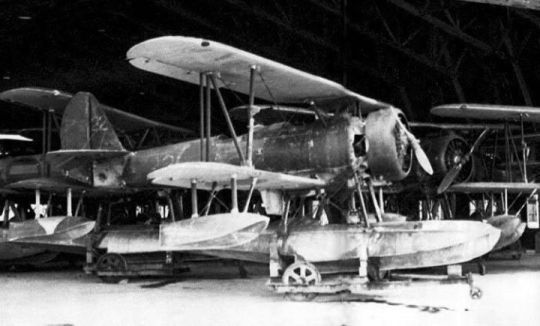

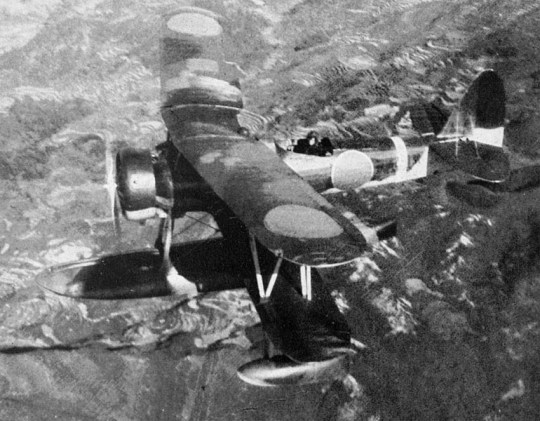
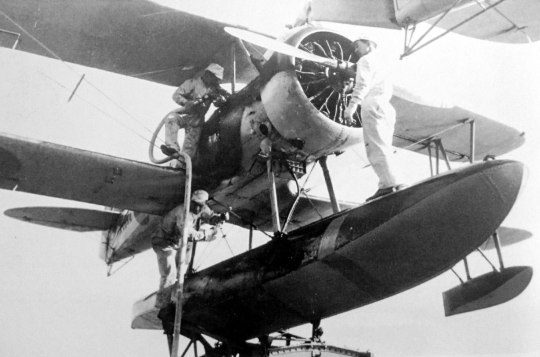
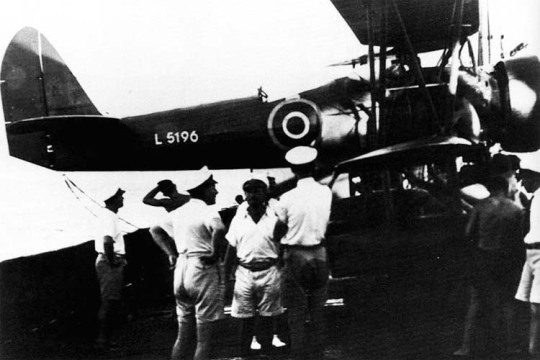


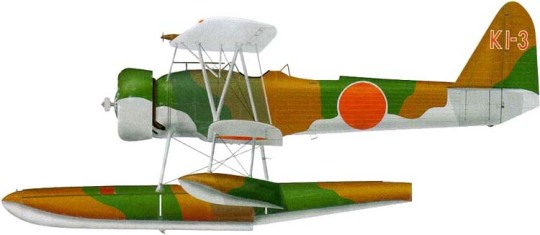



The Nakajima E8N was a Japanese ship-borne, catapult-launched reconnaissance seaplane aircraft of the Second Sino-Japanese War. It was a single-engine, two-seat biplane with a central main-float and underwing outriggers. During the Pacific war it was known to the Allies by the reporting name "Dave". It was used successfully in the Second Sino-Japanese War not only for reconnaissance, but also for dive-bombing and artillery spotting.
One E8N was purchased in early 1941 by the German Naval Attache to Japan, Vice-Admiral Wenneker, and dispatched on board KM MUNSTERLAND to rendezvous with the German auxiliary cruiser Orion at Maug Island in the Marianas. The meeting occurred on 1 FEB 1941, and Orion thus became the only German naval vessel of the Second World War to employ a Japanese float plane.
44 notes
·
View notes
Text

Bellefontaine Abbey in Bégrolles-en-Mauges, Anjou region of France
French vintage postcard
#vintage#photography#postkarte#french#carte postale#mauges#bégrolles-en-mauges#postal#region#bellefontaine#abbey#bellefontaine abbey#briefkaart#france#postcard#en#old#anjou#photo#ansichtskarte#bgrolles#sepia#postkaart#ephemera#tarjeta#historic
4 notes
·
View notes